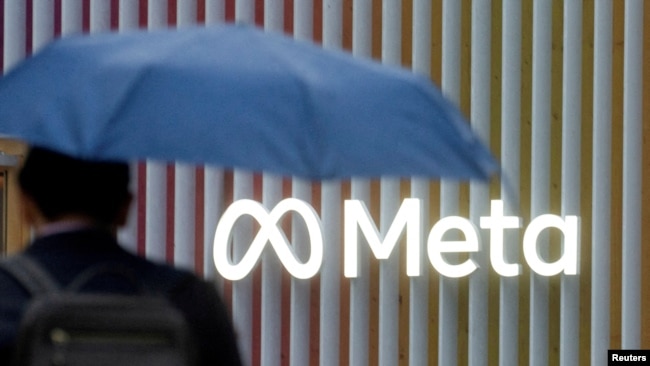何万もの言語が瞬時に理解できたら・・・・
コミュニケーションが楽しくなりますよね♬
メタ社の取り組みを見てみましょう!!!
VOAで英語を学びましょう!!
メタ、AIを活用した音声翻訳システムを実証(和訳)
Meta Demonstrates AI-Powered Speech-to-Speech Translation System
Oct.27,2022
Facebookの親会社であるメタ社は、話し言葉をある言語から別の言語へ直接翻訳するための技術ツールを開発しました。
Metaは最近、人工知能(AI)を搭載したツールが英語と福建語の間を翻訳できることを実演したビデオを公開しました。
メタ社のマーク・ザッカーバーグ氏はビデオの中で、このプロジェクトには通常とは異なる開発方法が必要だったと説明しています。それは、福建語が主に話し言葉であるためです。広く使われている書き言葉がないのです。
一般的に、翻訳システムの開発者は、対象となる言語の膨大な量の書き言葉を使ってAIモデルを訓練します。これにより、システムは多くの異なる言語の例や組み合わせを学習し、最も正しい結果を得ることができるようになります。
一般に、AIを使った翻訳システムは近年大きく進歩しています。国際的なコミュニケーションを円滑にするために、オンラインやデバイスで簡単に翻訳を行うことができるようになりました。
しかし、このようなシステムの問題点として、翻訳プロセスに連動した遅延があることが挙げられます。例えば、話し言葉を録音した場合、その言葉はまずテキストに変換され、その後AIシステムによって翻訳されます。そして、翻訳された言葉を再び音声に変換し、聞き取ることができるようにするのです。
このプロジェクトで珍しいのは、AIシステムに入力する大量の福建語のテキストが開発チームになかったことです。
福建語は中国語の方言の一つです。中国南東部の福建省に住む数百万人に話されています。また、台湾の多くの人々や、マレーシア、シンガポール、フィリピンの一部の地域でも話されています。この言語は、一般的に何世代にもわたって家族で受け継がれています。
メタ社は、福建語は主に話し言葉で、広く使われている文字体系を持たない3,500近い現存言語の一つであると指摘しています。同社は、AI開発者が世界のほとんどの言語をカバーする音声合成翻訳ツールの作成を目指していると言います。
今年初め、メタ社は2つの新しいAIプロジェクトを発表しました。1つはNo Language Left Behindと呼ばれるものです。ザッカーバーグ氏はビデオの中で、この取り組みは世界の”何百もの”言語をカバーする翻訳システムを作るためのものだと述べています。
もうひとつは、Universal Speech Translatorと呼ばれるものです。このプロジェクトの目標は、”あらゆる言語の音声翻訳”を可能にするシステムを構築することだと、同社は声明で述べています。メタ社のホッキョク語に関する最新のシステムは、Universal Speech Translatorプロジェクトの一環として開発されたものです。
ザッカーバーグ氏は、「どんな言語でも誰とでもコミュニケーションできる能力、それは人々が永遠に夢見てきた超能力であり、AIは私たちが生きている間にそれを実現しようとしています」と語っています。
メタ社は、福建語と英語との間の翻訳を行う新しいシステムを作るために、いくつかの異なる方法を使用したと述べました。このチームは、中国語の別のバージョンである北京語の文章例でAIモデルを訓練しました。北京語は福建語に似ています。
さらにメタ社の開発者は、福建語の話し言葉と類似した英語のテキストを比較するために設計されたエンコーディングツールを使用しました。また、開発チームは、結果が正しいことを確認するために、福建語話者と緊密に連携しました。
メタ社によれば、今回の音声翻訳と同じ手法で、将来的にはさらに多くの言語の音声翻訳システムを開発することを目指していると言います。
ただし、今回の北辰翻訳モデルは”まだまだ未完成”だといいます。現在、一度に全文を翻訳できるのは1文のみであるとのことです。
Meta Demonstrates AI-Powered Speech-to-Speech Translation System
Facebook parent company Meta has built a technology tool designed to directly translate spoken speech from one language to another.
Meta recently released a video that demonstrated how the artificial intelligence (AI)-powered tool can translate between English and the Hokkien language.
In the video, Meta chief Mark Zuckerberg explained that the project required different, unusual development methods. That is because Hokkien is mainly a spoken language. It does not have a widely used written form.
Generally, developers of translation systems train AI models on very large amounts of written text in the target languages. This arms the system with many different language examples and combinations in an effort to produce the most correct results.
In general, AI-powered translation systems have improved greatly in recent years. It is now easier than ever to get translation help online or on devices to make international communication better.
But one problem with such systems is that there are delays linked to the translation process. For example, when the system records spoken speech, the words are first converted into text and then translated by an AI system. Then, the translated words are converted back into speech so they can be heard.
The unusual part of the Meta project is that the development team did not have large amounts of Hokkien language text to feed into the AI system.
Hokkien is a version, or dialect, of Chinese. It is spoken by millions of people in the southeastern Chinese province of Fujian. It is also spoken by many people in Taiwan and some communities in Malaysia, Singapore and the Philippines. The language is generally passed down through generations of families.
Meta notes that Hokkien is one of nearly 3,500 living languages that are mainly spoken and do not have a widely used writing system. The company says its AI developers are aiming to create speech-to-speech translation tools that would cover most of the world’s languages.
Earlier this year, Meta announced two new AI projects. One is called No Language Left Behind. Zuckerberg said in a video that effort is designed to create translation systems to cover “hundreds” of world languages.
The other is called the Universal Speech Translator. The goal of that project is to build a system that can produce “speech-to-speech translation across all languages,” the company said in a statement. Meta’s latest system involving Hokkien was developed as part of its Universal Speech Translator project.
“The ability to communicate with anyone in any language — that’s a superpower people have dreamed of forever, and AI is going to deliver that within our lifetimes,” Zuckerberg said.
Meta said it used several different methods to create the new system to translate to and from Hokkien and English. The team trained its AI models on written text examples from another version of Chinese, Mandarin, which is similar to Hokkien.
In addition, Meta developers used an encoding tool designed to compare spoken Hokkien to similar English text. The team also worked closely with Hokkien speakers to make sure the results were correct.
Meta said it aims to use the same methods used for Hokkien to create speech-to-speech translation systems for many more languages in the future.
The company said, however, that its Hokkien translation model “is still a work in progress.” It noted that the system is currently only able to translate one full sentence at a time.
Words in This Story
translate – v. to change words from one language into another
artificial intelligence – n. the development of computer systems with the ability to perform work that normally requires human intelligence
text – n. written words
convert – adj. to change the appearance, form or purpose of something
encode – v. to represent complex information in a simple or short way
